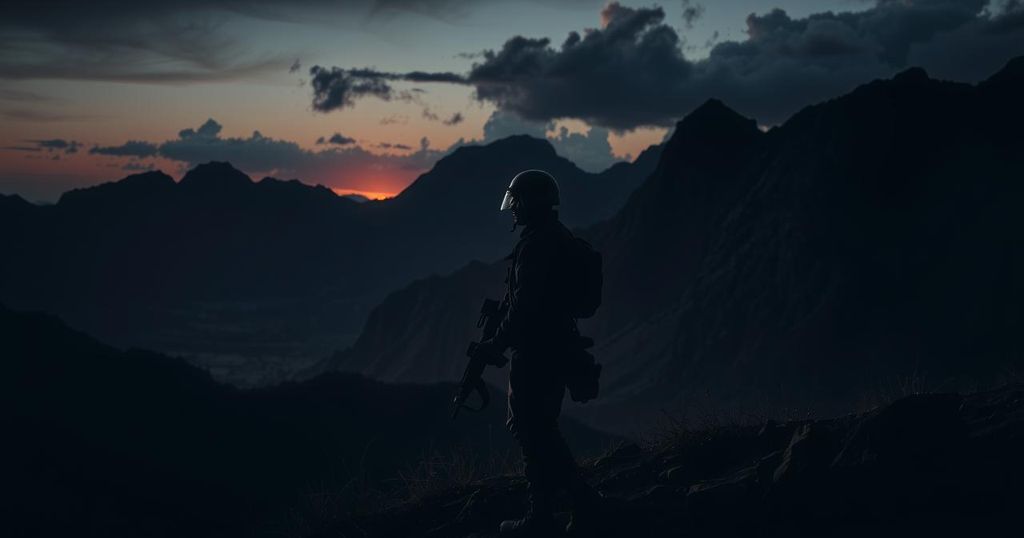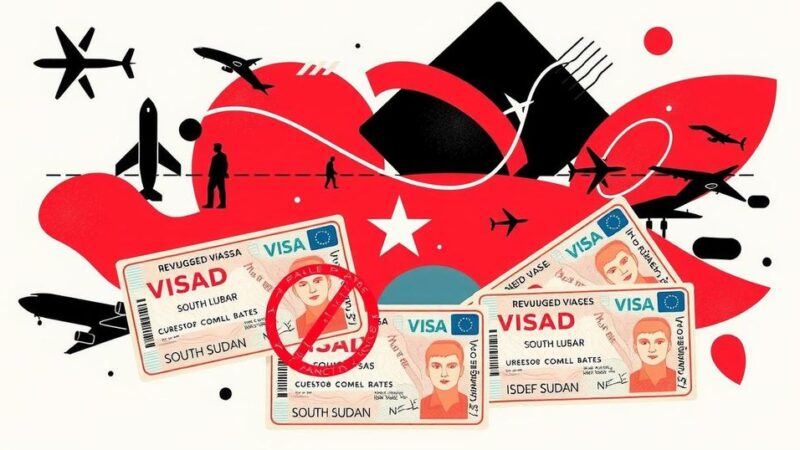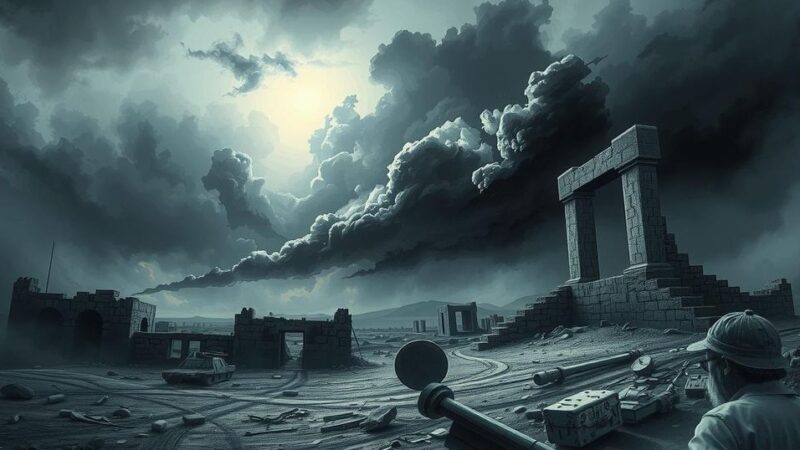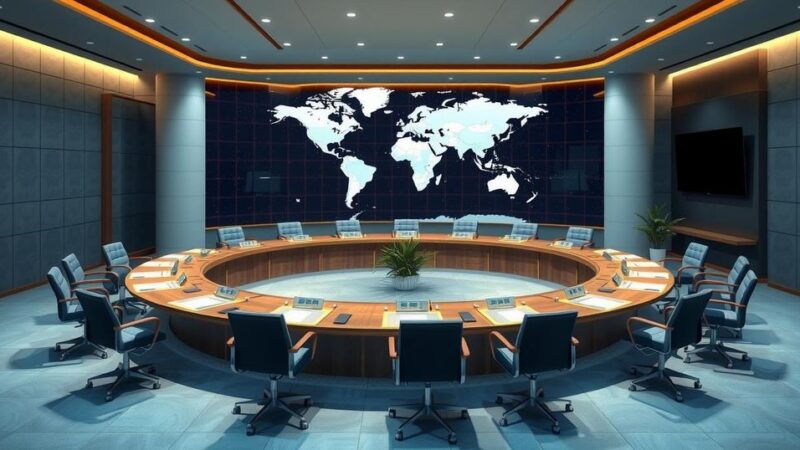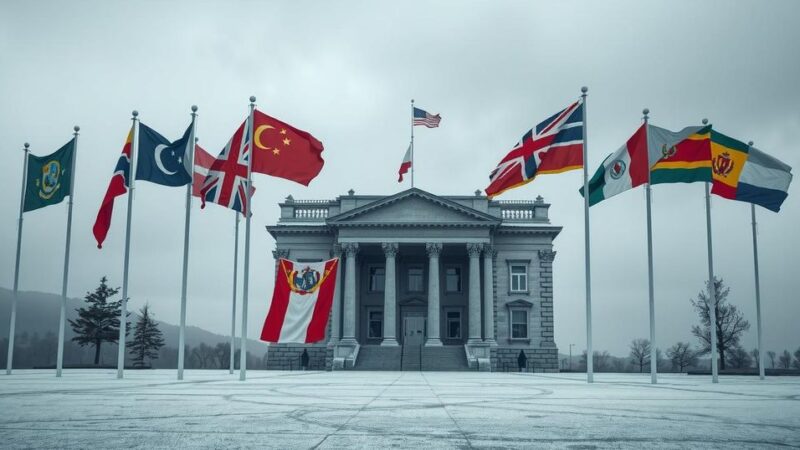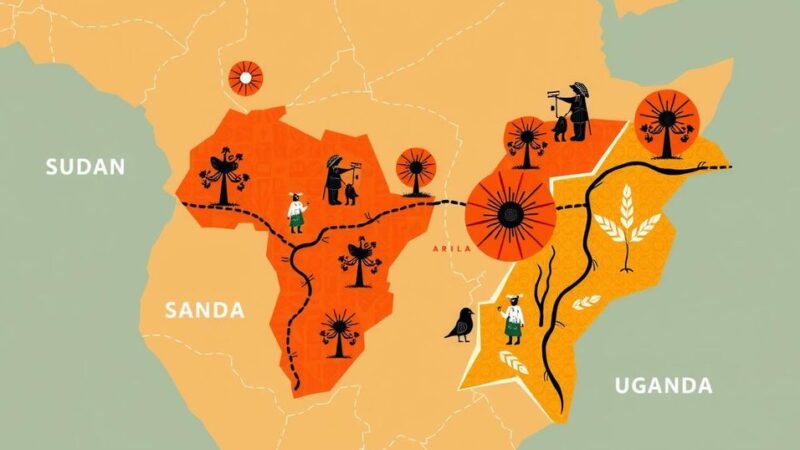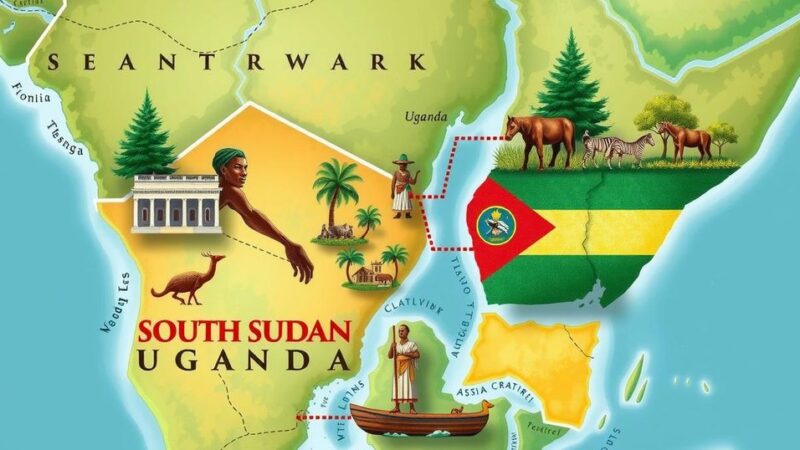Major General Peter Cirimwami, military governor of North Kivu, has died from combat injuries amid escalating violence from M23 rebels. The conflict has displaced over 400,000 people this year, with significant territorial gains by M23 threatening regional stability. International responses include travel advisories, highlighting the grave humanitarian crisis in the area.
Major General Peter Cirimwami, the military governor of North Kivu province in the Democratic Republic of the Congo, has succumbed to injuries sustained in combat against M23 rebel forces. Local officials reported that he was wounded during a visit to troops at the front line in Kasengezi, situated approximately 13 kilometers from Goma, shortly before his death was confirmed by several anonymous sources, including governmental and United Nations representatives.
The M23 rebels have made significant advances in the region, surrounding Goma, a city with a population of about two million people. Recent escalations include the capture of Sake, a strategic town located 27 kilometers northwest of Goma, which has heightened fears as it represents the last vital route into the city still under government control.
The ongoing conflict has resulted in the displacement of over 400,000 individuals this year alone, as reported by Matthew Saltmarsh, a spokesman for UNHCR. These displacements have been attributed to heavy bombardments forcing families to flee areas surrounding Goma in search of safety and shelter, exacerbating an already dire humanitarian situation.
The United States, the United Kingdom, and France have advised their citizens to leave Goma while transportation options are still available, indicating a serious international concern regarding escalating violence. Moreover, M23, which has been implicated in numerous atrocities, including sexual violence, continues to destabilize the region, having displaced millions since the conflict reignited three years ago.
M23 is one of many armed groups operating in the mineral-rich eastern DRC, and there are accusations that Rwanda supports the group. While Rwanda denies these allegations, it has acknowledged deploying troops and missile systems in the DRC to address security threats posed by a buildup of Congolese forces along the border. The ongoing violence has raised fears among those previously displaced, many of whom recall the horrors of M23’s earlier offensives.
The Democratic Republic of the Congo has been embroiled in conflict for decades, primarily in its mineral-rich eastern regions. The resurgence of the M23 rebel group, which primarily consists of ethnic Tutsis who separated from the Congolese army, has reignited tensions and violence in North Kivu province. This area has seen massive disturbances, leading to significant humanitarian crises, including widespread displacements and insecurity. The influence of external parties, especially Rwanda, complicates the conflict further, with accusations of support for rebel groups contributing to regional instability.
The death of Major General Peter Cirimwami highlights the escalating instability in North Kivu province, as M23 rebels close in on Goma. The humanitarian crisis is deepening, with over 400,000 people displaced this year. The international community is reacting to the escalating violence, emphasizing the need for immediate safety measures. The history of conflict in the region, combined with external influences, continues to threaten the stability of the DRC and the safety of its citizens.
Original Source: www.aljazeera.com
